iPhone sales: why Apple isn’t fazed by smartphone decline
Tech giant posts record revenues ahead of tomorrow’s launch of Apple TV+
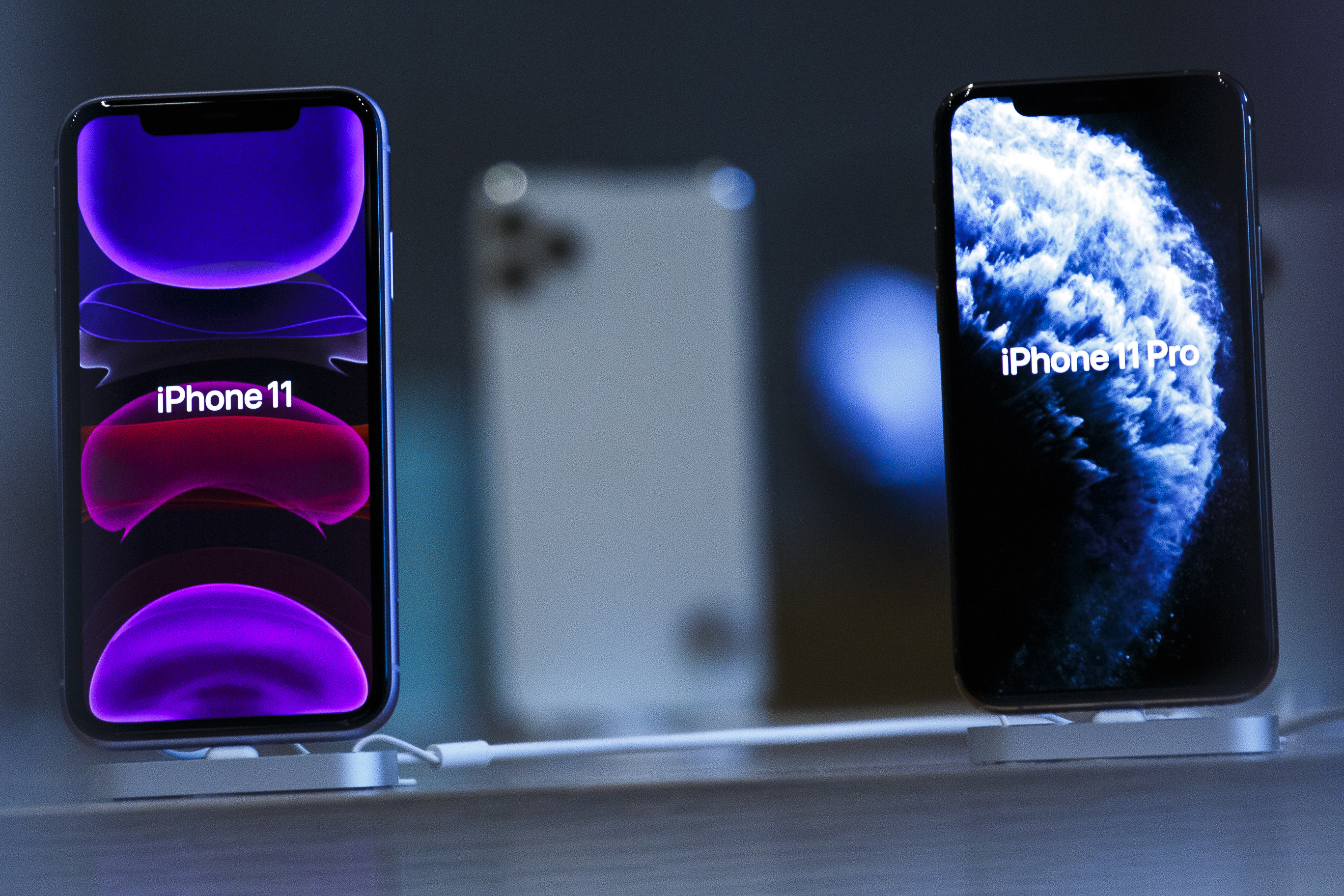
A free daily email with the biggest news stories of the day – and the best features from TheWeek.com
You are now subscribed
Your newsletter sign-up was successful
Apple has posted record revenues for its fourth financial quarter, despite a slide in smartphone sales after the release of the iPhone 11 range.
The US tech giant earned $64m (£49m) in revenue over the three-month period that ended on 28 September, representing a 2% year-on-year increase, The Verge reports.
Apple’s services, which include subscription plans such as Apple Music and Apple News+, appear to be a key driver in the company’s record Q4 revenue results. The tech site says that services contributed a record $12.5bn (£9.6bn) to the business over the past three months, beating last year’s fourth quarter by $1.9bn (£1.4bn).
The Week
Escape your echo chamber. Get the facts behind the news, plus analysis from multiple perspectives.

Sign up for The Week's Free Newsletters
From our morning news briefing to a weekly Good News Newsletter, get the best of The Week delivered directly to your inbox.
From our morning news briefing to a weekly Good News Newsletter, get the best of The Week delivered directly to your inbox.
“We concluded a groundbreaking fiscal 2019 with our highest Q4 revenue ever, fuelled by accelerating growth from services, wearables and iPad,” said Apple CEO Tim Cook.
However, iPhone sales continue to decline even after launch of the 11, 11 Pro and 11 Pro Max handsets in early September. This led to an overall 3% drop in profits, recorded at $13.7bn (£10.6bn), compared to the same quarter in 2018.
What’s causing iPhone sales to slump?
Apple’s smartphones typically account for half of its revenue and “a large share of its profits”, according to CNet, but that wasn’t the case during this fourth quarter.
A free daily email with the biggest news stories of the day – and the best features from TheWeek.com
iPhone sales dropped almost 10% to about $33bn (£25.5bn), the tech site says, although Apple is adamant that customer demand for the iPhone 11 range remains high.
Dwindling smartphones sales may not be directly linked to the quality of Apple’s iPhones, but more a shift in consumer attitudes.
As reported by 9to5Mac, smartphone buyers are no longer swapping their iPhone for a new model every two years. Instead, they’re waiting for three or four years before making the jump to a better handset, as changes between device generations are becoming more “incremental” from year to year.
When the iPhone 6 launched in 2014, it provided Apple with “a big boost to sales” as there had been “a lot of pent-up demand for larger iPhones”, the tech site says. While the iPhone X introduced a radical new look in 2017, buyers were put off by its higher price tag and therefore it failed to drive up sales in the same way.
The subsequent iPhone XS and this year’s iPhone 11 all share similar designs and technical specifications, which is perhaps another reason why Apple fans are holding on to their handsets for longer.
Is Apple’s grip on the market beginning to slip?
Not necessarily. Prior to Apple’s quarterly report, it emerged that the company had asked suppliers to increase production of the cheaper iPhone 11 and 11 Pro by 10%, while slightly reducing the manufacture of the range-topping iPhone 11 Pro Max, Japanese news site Nikkei Asian Review reports.
That said, the BBC notes that Cook has been moving the company away from being an iPhone-focused business and towards a model that is more reliant on subscriber services, such as Apple Music and the App Store.
With the firm’s Netflix rival, Apple TV+, launching tomorrow with a host of original shows and movies, the tech firm looks well prepared to maintain its higher revenues and profit margins as consumers keep hold of their smartphones for longer.
-
 Political cartoons for February 14
Political cartoons for February 14Cartoons Saturday's political cartoons include a Valentine's grift, Hillary on the hook, and more
-
 Tourangelle-style pork with prunes recipe
Tourangelle-style pork with prunes recipeThe Week Recommends This traditional, rustic dish is a French classic
-
 The Epstein files: glimpses of a deeply disturbing world
The Epstein files: glimpses of a deeply disturbing worldIn the Spotlight Trove of released documents paint a picture of depravity and privilege in which men hold the cards, and women are powerless or peripheral
-
 Will AI kill the smartphone?
Will AI kill the smartphone?In The Spotlight OpenAI and Meta want to unseat the ‘Lennon and McCartney’ of the gadget era
-
 Is Apple’s Tim Cook about to retire?
Is Apple’s Tim Cook about to retire?Today's Big Question A departure could come early next year
-
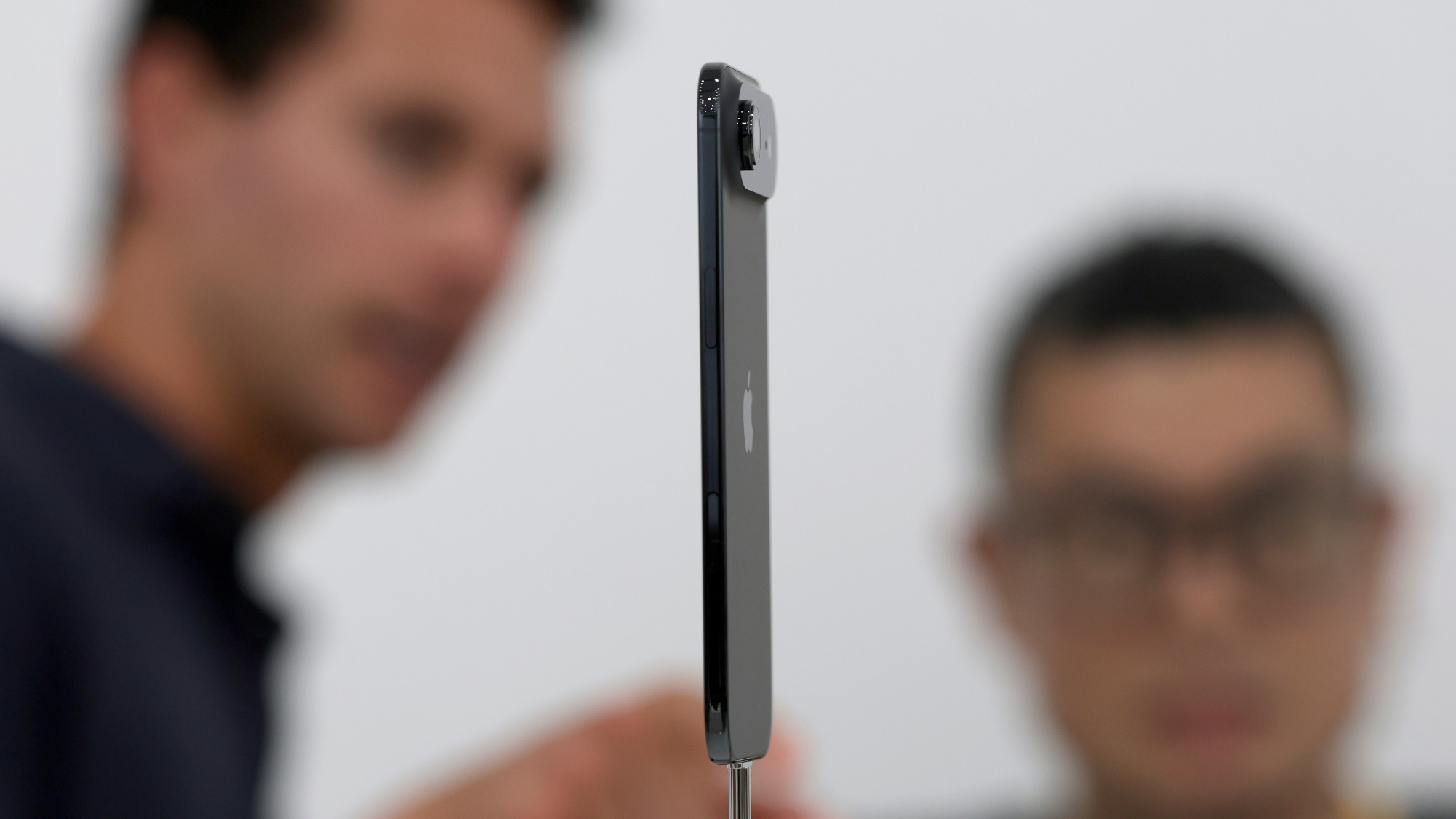 iPhone Air: Thinness comes at a high price
iPhone Air: Thinness comes at a high priceFeature Apple’s new iPhone is its thinnest yet but is it worth the higher price and weaker battery life?
-
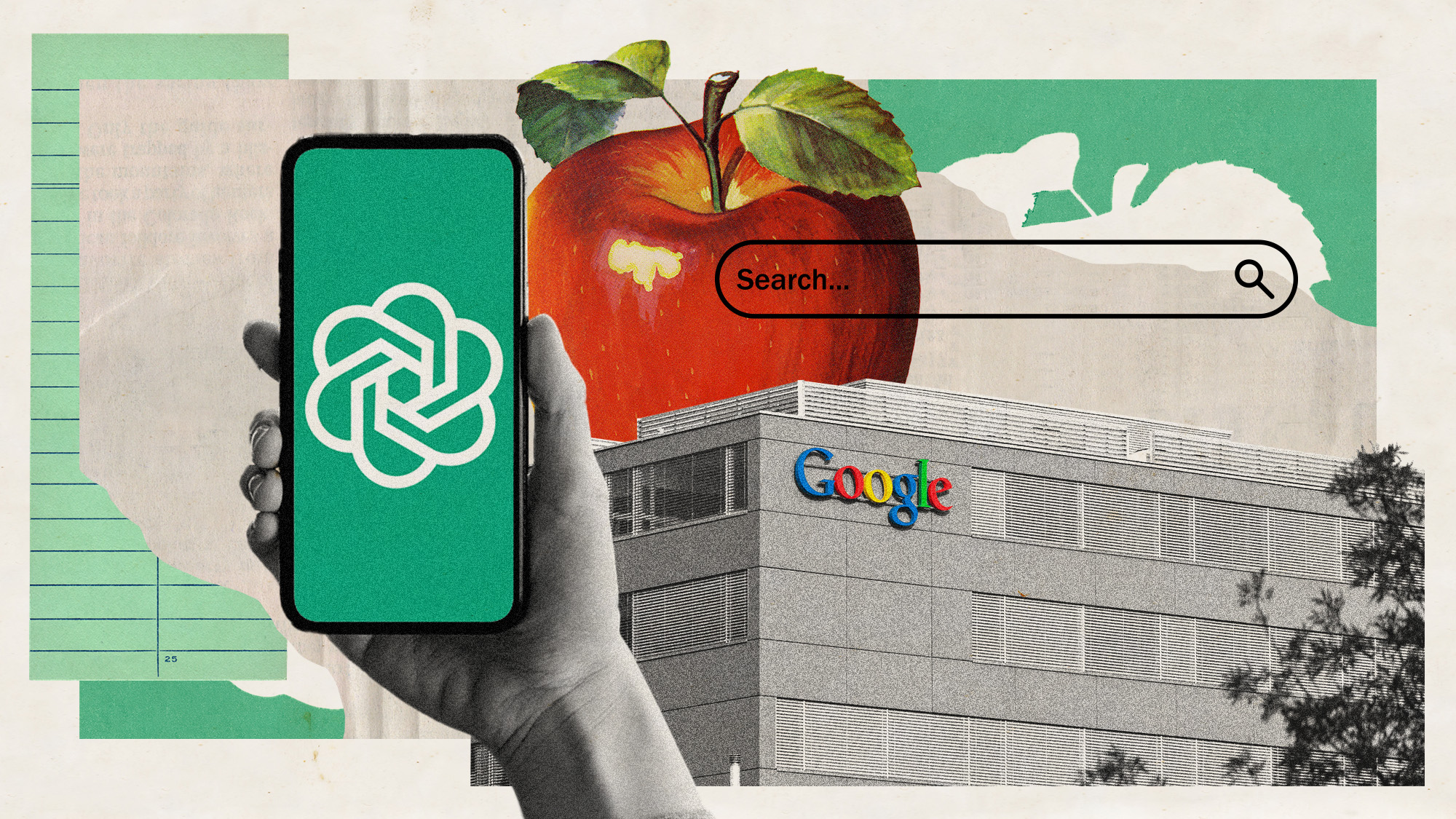 Is Apple breaking up with Google?
Is Apple breaking up with Google?Today's Big Question Google is the default search engine in the Safari browser. The emergence of artificial intelligence could change that.
-
 Why won't Apple make iPhones in America?
Why won't Apple make iPhones in America?Today's Big Question Trump offers a reprieve on tariffs, for now
-
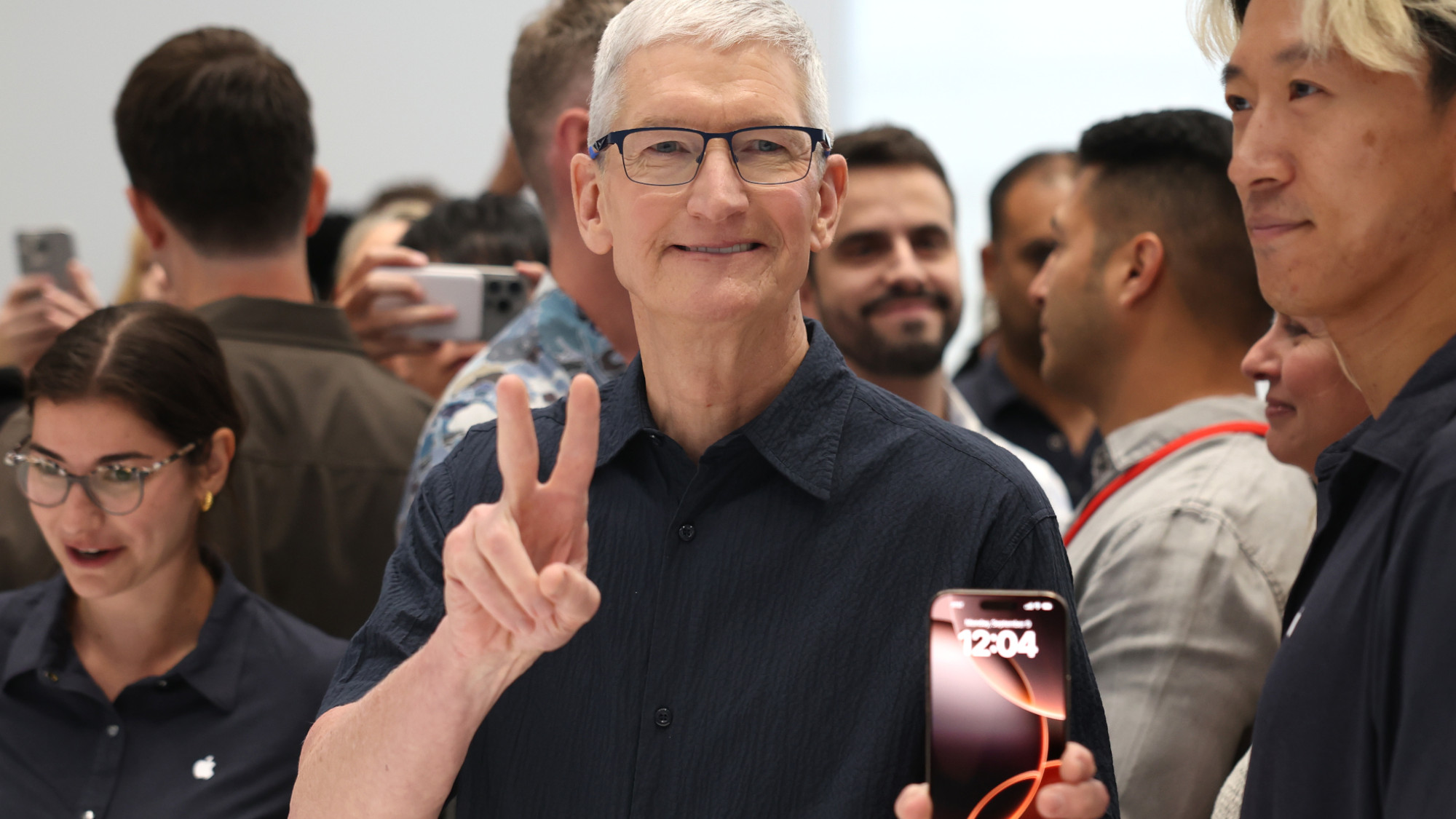 Not there yet: The frustrations of the pocket AI
Not there yet: The frustrations of the pocket AIFeature Apple rushes to roll out its ‘Apple Intelligence’ features but fails to deliver on promises
-
 Space-age living: The race for robot servants
Space-age living: The race for robot servantsFeature Meta and Apple compete to bring humanoid robots to market
-
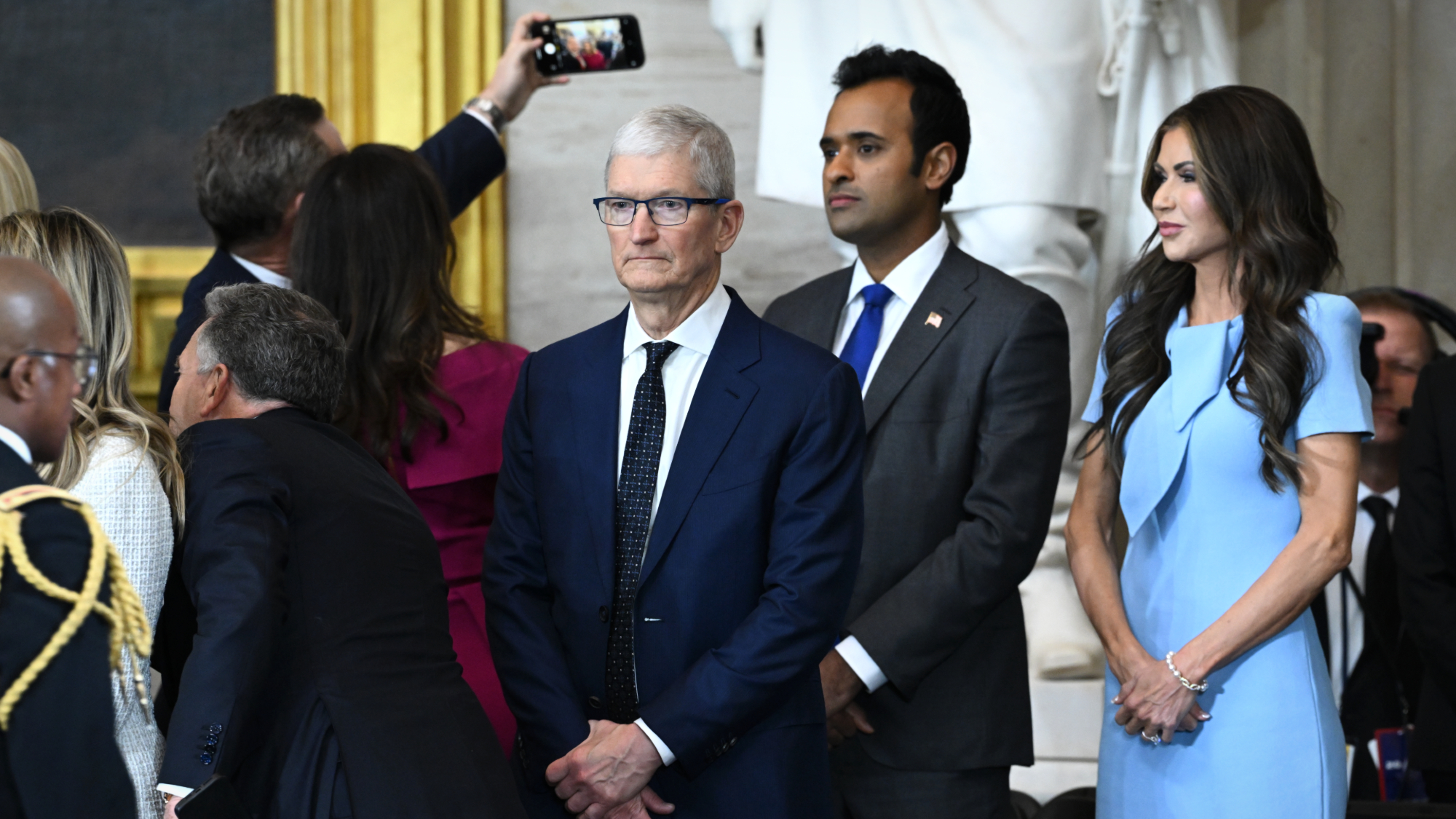 Apple pledges $500B in US spending over 4 years
Apple pledges $500B in US spending over 4 yearsSpeed Read This is a win for Trump, who has pushed to move manufacturing back to the US